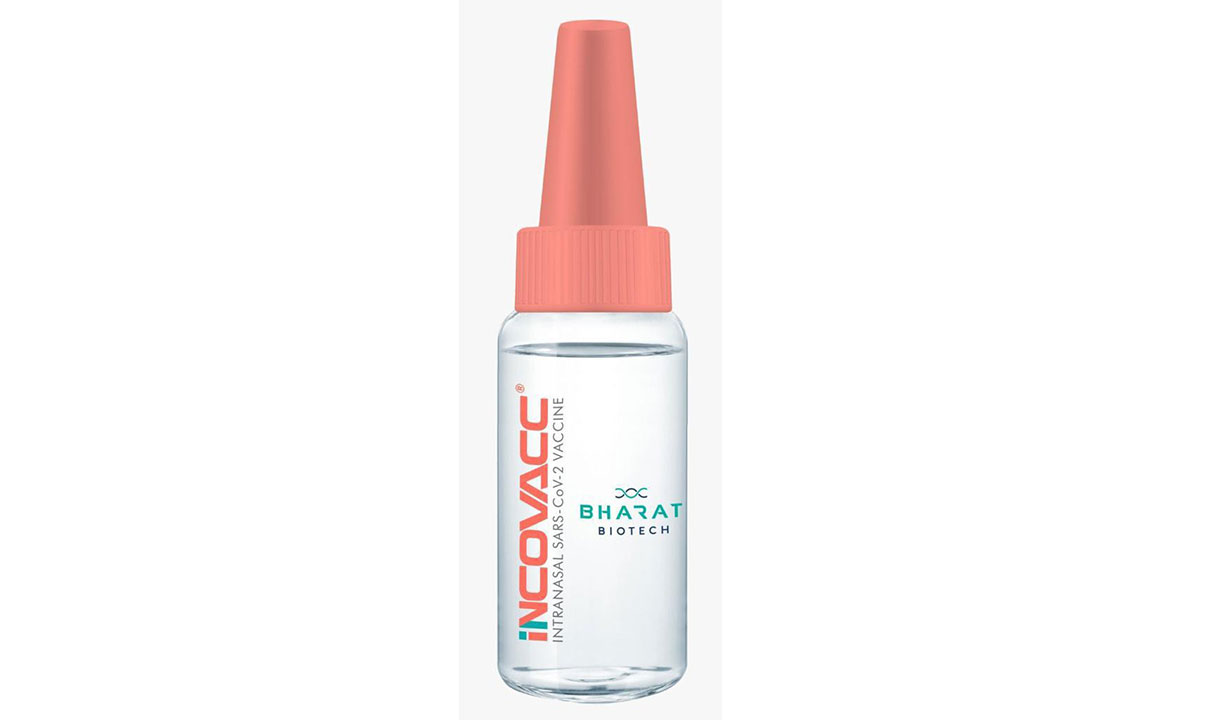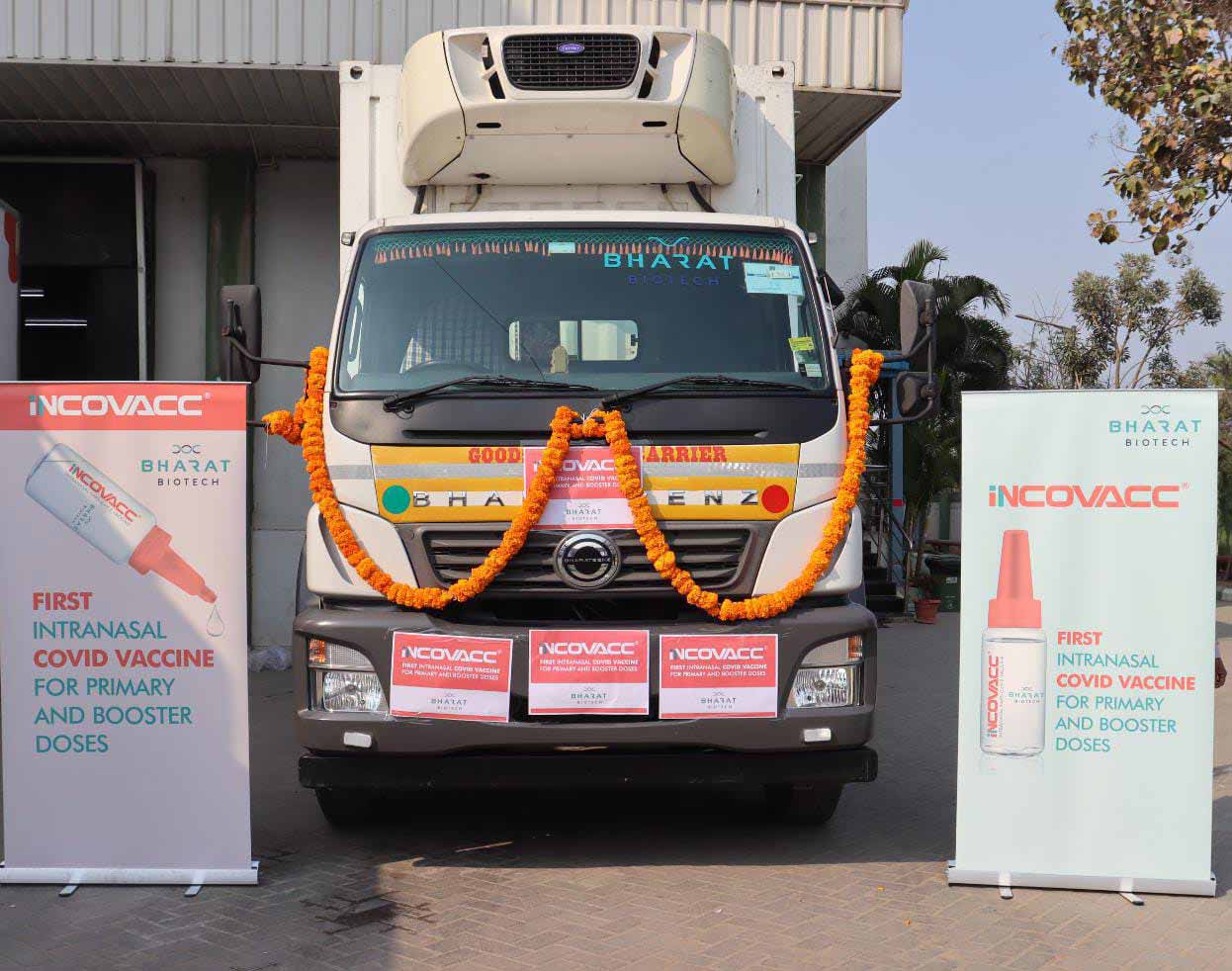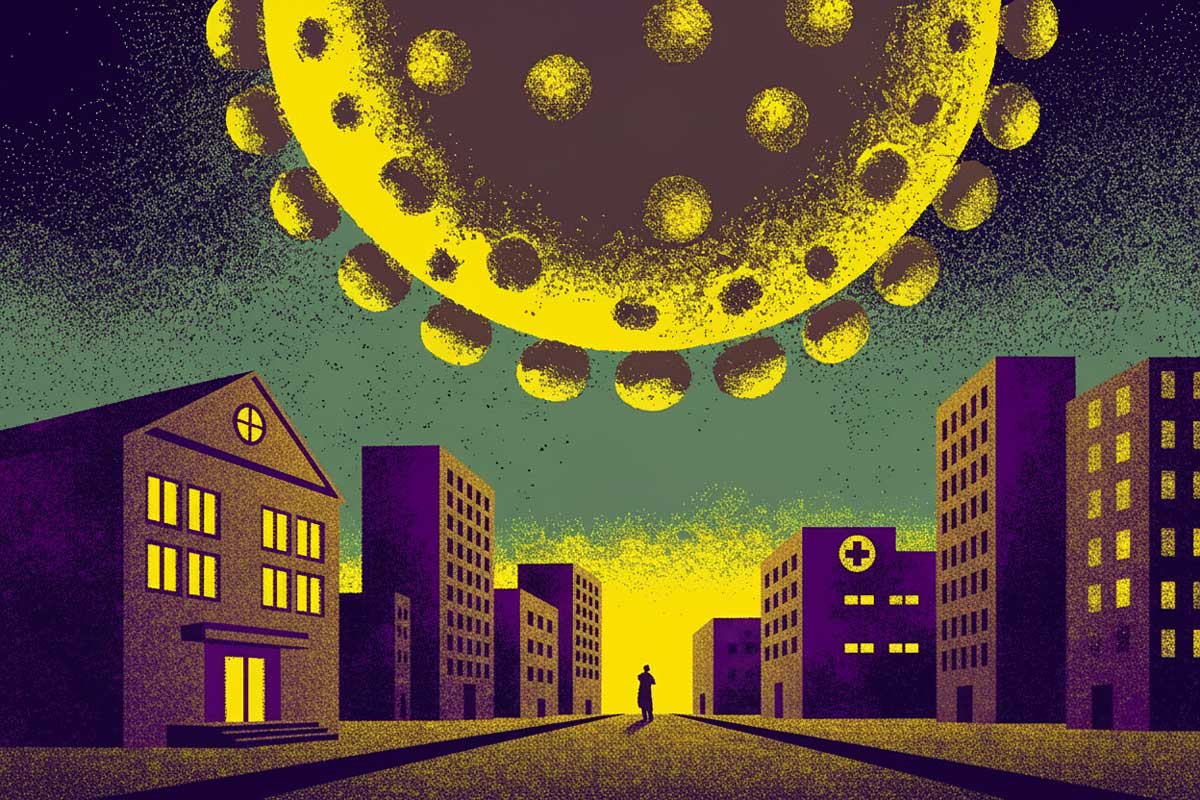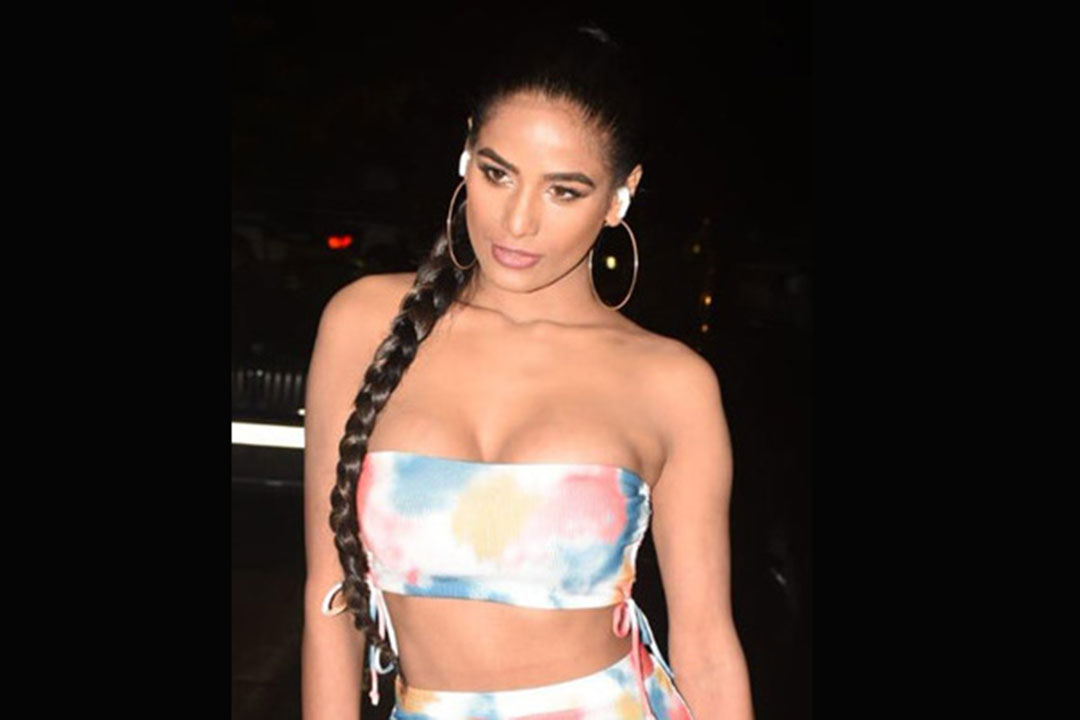Can the “world’s first intranasal COVID vaccine” help spur booster uptake in India?
Physicians say they hope the needle-free jab will fuel booster demand, helping squash transmission of the pandemic virus.
- 16 February 2023
- 5 min read
- by Nasir Yousufi

Marvelling at its promised ease of administration, people from all four corners of India say they are eagerly awaiting a COVID-19 vaccine booster dose delivered not by needle, but by nose.
iNCOVACC, billed as the world's first intransasal COVID-19 vaccine, hits the Indian market this month, after a formal launch on January 26.
"The day I came to know about intra-nasal vaccine, I decided to go for it. Though I have received both first and second dose of COVID-19 vaccination last year, still I will prefer to receive it," said Shaheen Khan, who works for an e-commerce company in Gurugram, one of the capital city's satellites. Khan, who daily travels a longer distance between her home in south Delhi's Malviya Nagar to her workplace, said that she needs a booster dose as she fears her chances of exposure to the virus rise during her regular commute. "As the booster dose is now available without any prick, I am eagerly waiting for it to hit the market," she said.
At this point of time the booster doses are crucial as they can effectively keep the possible fourth wave of Corona virus infection in the country at bay. We have already made a demand for this booster vaccine, as large number of queries from the vaccination seekers are already pouring in.
Dr S Jayaraman, pulmonologist
In December last year, Bharat Biotech India Limited, an Indian biotechnology company, announced the imminent release of iNCOVACC, after it received approval for a restricted, emergency roll-out from the Central Drugs Standard Control Organisation.
The approval provided that iNCOVACC vaccine can be taken by any individual above 18 years who has already received two regular doses of available vaccine – whether Covaxin, Covashield or any other duly licensed product.

The intranasal vaccine is a recombinant adenoviral vectored vaccine, developed in partnership with Washington University, St Louis.
"Since the vaccine is needle-free, administration of two drops of vaccine through nasal passage would also reduce the burden on trained health care workers for its ease of use. At the same time the vaccine also eliminates the needle-associated risk of injuries or infections too," said a senior official from the Hyderabad-based Bharat Biotech.
Have you read?
Dr Hemant Karla, who heads the Department of Pulmonary Medicine at the capital's Kalra Hospital and Maharaja Agrasen Super Specialty Chest Hospital, recommends that all eligible people should receive this booster dose to better arm their immune systems against the still-circulating pandemic virus. "The community should come forward to take these booster doses as they play important role in checking the disease," he said.
Going needle-free could help combat certain forms of vaccine hesitancy, experts hope.
"In my opinion, the intranasal vaccine has a potential to reduce vaccine hesitancy," said Dr Shurjeet Chatterjee, a professor of pulmonary medicine at the Institute of Post Graduate Medical Education in eastern Kolkata. "Since many people suffer from needle-prick phobia, the same will be overcome through its ease of administration.
"[Already] many patients are asking for the intranasal vaccine. As the company has proposed to keep it available in this month, it will be soon available in our hospital too" he added.
According to a Bharat Biotech statement, the company conducted Phase III trials for safety and immunogenicity on the product as a two-dose primary series on a geographically dispersed group of 3,100 subjects, and as a heterologous booster on 875 subjects who had already received a two-dose vaccination. Trial subjects showed significant levels of Mucosal lgA antibody levels in the upper respiratory tract, anticipated by the drug maker to play a role in reducing both transmission and infection.
Launched formally on 26 January, on the eve of country's Republic Day, the vaccine costs around 800 rupees (US$ 9.66) plus taxes at private facilities and is priced at 325 rupees ($3.92) in government hospitals. Conventional needle-delivered vaccines are available to private hospitals for 225 rupees ($ 2.72).
Right from my childhood, I have always disliked injection for obvious reason of needle-prick, But this one is easy, as it is needle- less.
– Rakesh Zinta, school-teacher
Dr S Jayaraman, Consultant Pulmonologist at Apollo First Med Billroth Hospitals and MGM HealthCare in Chennai, in the southern state of Tamil Nadu, believes that booster vaccines like iNCOVACC are important to drive down community spread of COVID-19 again. "These types of vaccines play a pivotal role in preventing the spread of infection from one person to another person," said Dr Jayaraman.
"At this point of time the booster doses are crucial as they can effectively keep the possible fourth wave of coronavirus infection in the country at bay. We have already made a demand for this booster vaccine, as a large number of queries from the vaccination seekers are already pouring in. We are possibly going to start the administration of nasal vaccination this or next week as the first consignment of intranasal vaccine is expected soon," Dr Jayaraman said, speaking in the first week of February.

Credit: Credit: Bharat Biotech
Bharat Biotech rolled out the first shipment of vaccines to several locations across the country on 6 February, and company officials say the vaccine will be available on the market and in government-managed hospitals and drug stores by mid-month.
Rakesh Zinta, a 48-year-old school teacher from Solan in the mountain state of Himachal Pradesh says he and his wife are eagerly waiting to get the intranasal vaccine. They regularly check the government-run COWIN mobile app in hopes of nabbing a vaccination appointment in Chandigarh, a major city at the edge of the Himalayas.
"Right from my childhood, I have always disliked injections for obvious reason of needle-prick. But this one is easy, as it is needle-less," Zinta said.
Twitter: @HussainYousuffi
More from Nasir Yousufi
Recommended for you









